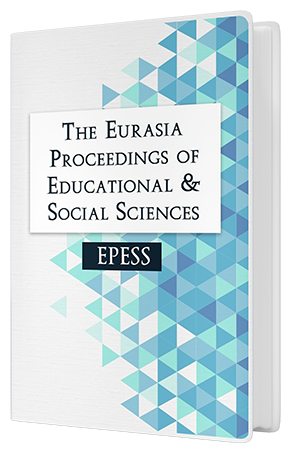The Scenario of Emotional Intelligence, Self-Esteem and Organizational Commitment
Keywords:
Emotional intelligence, Self-esteem, Organizational commitmentAbstract
Emotional intelligence is now gaining ground in various psychological studies. The emphasis given to the competencies in emotional intelligence suggests that these elements also contribute to human emotional change and influenced the formulations of human behavioral. In this study, the issues in the workplace are referring to emotional intelligence, self-esteem and commitment of employees. The specific purpose of this study was to test the impact of emotional intelligence among employees whether it able or unable to influence a commitment to the organization through employee self-esteem factor. A total of 196 civil servants in the Local Authority (PBT) have been selected as respondents. Measurement tools that are used in the data lump is Emotional Intelligence Self-Description Inventory (EISDI), Rosenberg Self-Esteem Scale (RSES) and the Employee Commitment Survey Revised Version (ECS). The data was then analyzed using hierarchical regression analysis. The findings show that emotional intelligence and four dimensions of emotional intelligence have a direct impact on organizational commitment. In fact, the emotional intelligence and dimensions also has an indirect effect on organizational commitment when self-esteem as mediator factor is controlled. Employee self-esteem later found to function as a partly mediator that affecting the relationship between overall emotional intelligence and four dimensions of emotional intelligence with organizational commitment. The most important findings are found emotional intelligence dimension among employees are able to become more relevant with the increasing availability of commitment of employee when there was the element of self-esteem as a mediator factor.Downloads
Published
Issue
Section
License
Copyright (c) 2018 The Eurasia Proceedings of Educational and Social Sciences

This work is licensed under a Creative Commons Attribution-NonCommercial-ShareAlike 4.0 International License.
The articles may be used for research, teaching, and private study purposes. Any substantial or systematic reproduction, redistribution, reselling, loan, sub-licensing, systematic supply, or distribution in any form to anyone is expressly forbidden. Authors alone are responsible for the contents of their articles. The journal owns the copyright of the articles. The publisher shall not be liable for any loss, actions, claims, proceedings, demand, or costs or damages whatsoever or howsoever caused arising directly or indirectly in connection with or arising out of the use of the research material. All authors are requested to disclose any actual or potential conflict of interest including any financial, personal or other relationships with other people or organizations regarding the submitted work.




